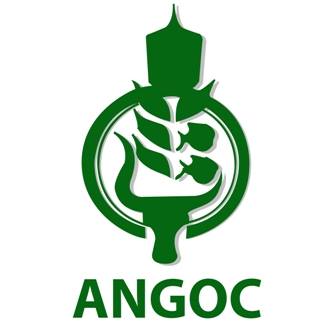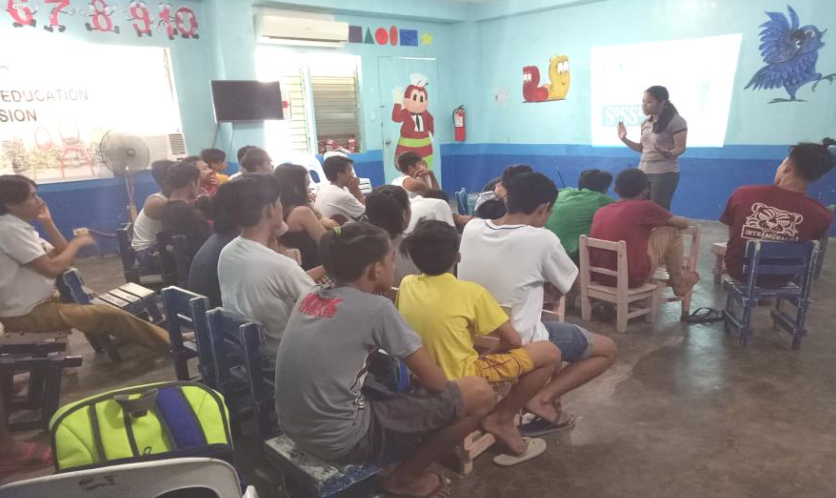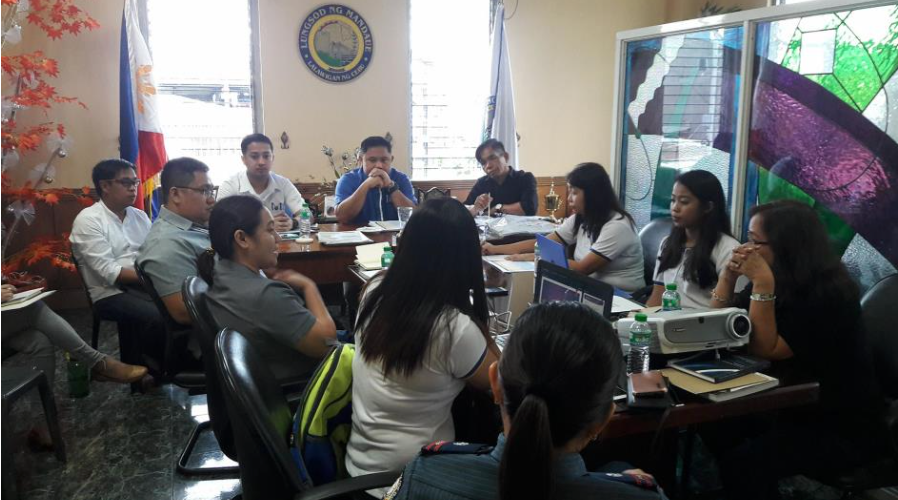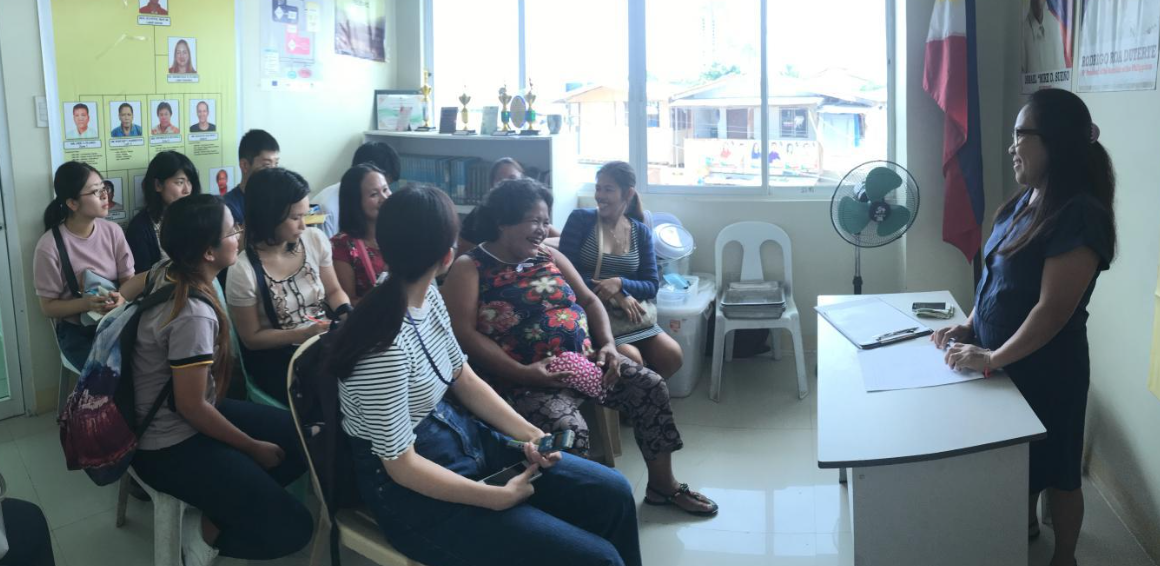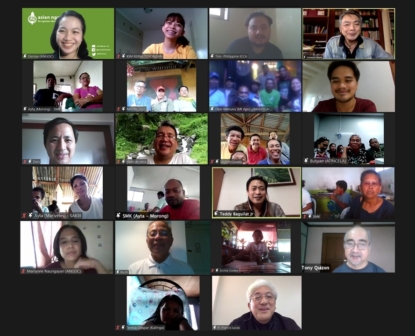Project
Influencing the ENIPAS law
-
Amount Funded
80,313 EUROProject Duration
01 Aug 2019 - 01 Jun 2020 -
-
Lead organisation
-
Asian NGO Coalition for Agrarian Reform and Rural Development (ANGOC) is the first of its kind as an indigenous regional network composed of Asian NGOs independent from the influence of governments and international bodies. Despite the decline of global funding for programmes, projects on food security, and on land and resource rights, ANGOC remains steadfast in these agendas. In the Philippines, ANGOC acts as the convenor of the National Engagement Strategy (NES), the main platform for members of the International Land Coalition (ILC) to work together at the country-level addressing issues of land and resource rights.
The network consolidates and harmonises various standpoints of Civil Society Organisations (CSOs) and to position CSOs to constructively engage governments and the international community. Given that of late, civic space for CSO participation in governance, especially in land and resource governance has been shrinking especially in the Philippine context, this strength has proved invaluable as the ANGOC still maintains its relevance in its engagement with various government agencies.
-
Organisation
Asian NGO Coalition for Agrarian Reform and Rural Development (ANGOC) is the first of its kind as an indigenous regional network composed of Asian NGOs independent from the influence of governments and international bodies. Despite the decline of global funding for programmes, projects on food security, and on land and resource rights, ANGOC remains steadfast in these agendas. In the Philippines, ANGOC acts as the convenor of the National Engagement Strategy (NES), the main platform for members of the International Land Coalition (ILC) to work together at the country-level addressing issues of land and resource rights.
The network consolidates and harmonises various standpoints of Civil Society Organisations (CSOs) and to position CSOs to constructively engage governments and the international community. Given that of late, civic space for CSO participation in governance, especially in land and resource governance has been shrinking especially in the Philippine context, this strength has proved invaluable as the ANGOC still maintains its relevance in its engagement with various government agencies.
-
Project
On 22 June 2018, Republic Act 1738 or the Expanded National Integrated Protected Areas System (ENIPAS) was enacted into law and declared in policy that the traditional resource governance of Indigenous Cultural Communities and Indigenous Peoples (ICCs/IPs) shall be recognised within Protected Areas. Other critical provisions in this law is the establishment of additional 94 protected areas and enhanced governance structure of the Protected Area Management Board (PAMB) including the requirement of having 1-3 IP representative/s when necessary.
Influencing the ENIPAS law project empowers ICCs/IPs affected by Protected Areas within ancestral domains to fully and effectively participate in the implementation of the ENIPAS through the following interventions:
• Facilitating the identification of potential indigenous community representatives in the PAMB; IPs’ policy and process review of the ENIPAS; and,
• Capacity development for IP leaders to effectively represent their ICCs in their respective PAMBs.
The capacity development for IP leaders is conducted across 2 ethno-graphic regions:
• Island regions: IV-B, VI, NIR, and VII
• Eastern and Southern Mindanao: XI and XII
Advocacy and training materials produced provide ICCs/IPs with the necessary knowledge and tools. This enables them to advocate for their right to self-determination in their traditional territories in their engagement with the enhanced PAMB structure.
-
-
On 22 June 2018, Republic Act 1738 or the Expanded National Integrated Protected Areas System (ENIPAS) was enacted into law and declared in policy that the traditional resource governance of Indigenous Cultural Communities and Indigenous Peoples (ICCs/IPs) shall be recognised within Protected Areas. Other critical provisions in this law is the establishment of additional 94 protected areas and enhanced governance structure of the Protected Area Management Board (PAMB) including the requirement of having 1-3 IP representative/s when necessary.
Influencing the ENIPAS law project empowers ICCs/IPs affected by Protected Areas within ancestral domains to fully and effectively participate in the implementation of the ENIPAS through the following interventions:
• Facilitating the identification of potential indigenous community representatives in the PAMB; IPs’ policy and process review of the ENIPAS; and,
• Capacity development for IP leaders to effectively represent their ICCs in their respective PAMBs.
The capacity development for IP leaders is conducted across 2 ethno-graphic regions:
• Island regions: IV-B, VI, NIR, and VII
• Eastern and Southern Mindanao: XI and XII
Advocacy and training materials produced provide ICCs/IPs with the necessary knowledge and tools. This enables them to advocate for their right to self-determination in their traditional territories in their engagement with the enhanced PAMB structure.
-
Here are the 10 stories of Hope and Success they submitted with their final project report:

Link to project objectives | Experiences & Achievements
Bidlisiw has proved to be a learning organisation that stays true to the nature of their Foundation: developing programmes and services that are tailor-fitted for children who are in need of special protection. Through their Innovate & Learn project which aimed to pilot test a community-based programme for children drug-users and surrenderees, the following questions were addressed:
- Is the Combined AKAP–KKDK-Bidlisiw modules responsive to the needs of the children drug users/surrenderees? How/In what ways?
- What are the additional considerations in implementing the combined modules for children who are drug users?
- What are the guidelines for replication?
Based on the evaluation of the Volunteer facilitators and the Staff, the module is effective even to those children without drug history (only those who used cigarettes and drink alcoholic beverages), but it is more effective to those who have tried using illegal drugs. If this project will be replicated and decided to use the modules to children without drug related activities they should be grouped together and will not be mixed to those who used illegal drugs. It was also noted that the module is not effective to those children who have severe cases of addiction.
The following are the changes that have manifested throughout the project:
- 6 (5 males, 1 female) Recovery Buddies (peers who have already finished the training) were deployed to the project and helped in the implementation of the activities. They have been inspiring the enrolled children to change and stop their use of illegal drugs. Aside from bringing inspiration, they also helped in influencing the barangay (town) officer members to eradicate or minimize stigma, shame, and discrimination in the community. Their testimonies helped in persuading them to support the implementation of Community Based Recovery Program for Children.
- Families are now empowered. They are able to improve their confidence in accessing services from both government and non-government agencies such as medical, food, legal assistance, among others.
- Families became supportive to the life and career plans of their children. They are also monitoring the school performances of their children which also motivate children to push themselves to study well. Parents also monitored the whereabouts of their children.
- Families are able to resolve conflicts and issues on their own with minimal support/assistance from the project. Parents will only ask the help of the Child/Family Development Staff if they feel that they could no longer handle the issues.
- Children learned to be trustful of sharing their activities. They openly disclosed with the Staff and volunteers about their activities especially in relation to their drug use.
- Children are able to define clear and concrete plans for their future. They have gained inspiration to dream and believe that those dreams are possible. They are hopeful that they will succeed with the help of their families and other people who believe in them.
- One change that children manifested while attending the weekly sessions is that they could already utter and identify positive traits or behavior in themselves. They also practiced appreciating the goodness of their group mates and even developed friendships that they cherished.
- Children also realised the importance of education. The children who are out of school also expressed their interest to enroll themselves to the Alternative Learning Sessions.
- The relationship of children and families has gradually improved. Parents’ learning from attending Primary Caregivers Enhancement Training were applied and children’s positive behavior changes are the factors of the improvement of the relationship of the entire family.
- There were 6 training completers and 11 family members referred for job placement through Bidlisiw program on Enhancing Self Wage Employment Opportunities. The other 7 completers acquired jobs through their own initiatives.
- Mandaue City through the its focal person supported the endeavor of the project by allocating budget for the implementation of Community Based Recovery Program for Children Drug Users/Surrenderees. They also entrusted Bidlisiw to train the remaining 16 barangays to become sensitive to the needs of children recovering from illegal drugs.
The experience and learning of the project led to its replication in the Island of Camotes with another funder and later will also be replicated in the City of Lapulapu.


Links to outputs
You may see here more stories of change published earlier in the project implementation:
https://voice.global/stories/three-voices-one-dream/
Future plans
The project has documented the process undergone by the team in the two years of its implementation. These documents are now compiled and endorsed to the hired consultant who will be writing the Manual of Experience of the project. Once this Manual of Experience is finalised and produced, copies will be given to Mandaue City and other nearby cities interested to replicate the experience of the project.
- News

